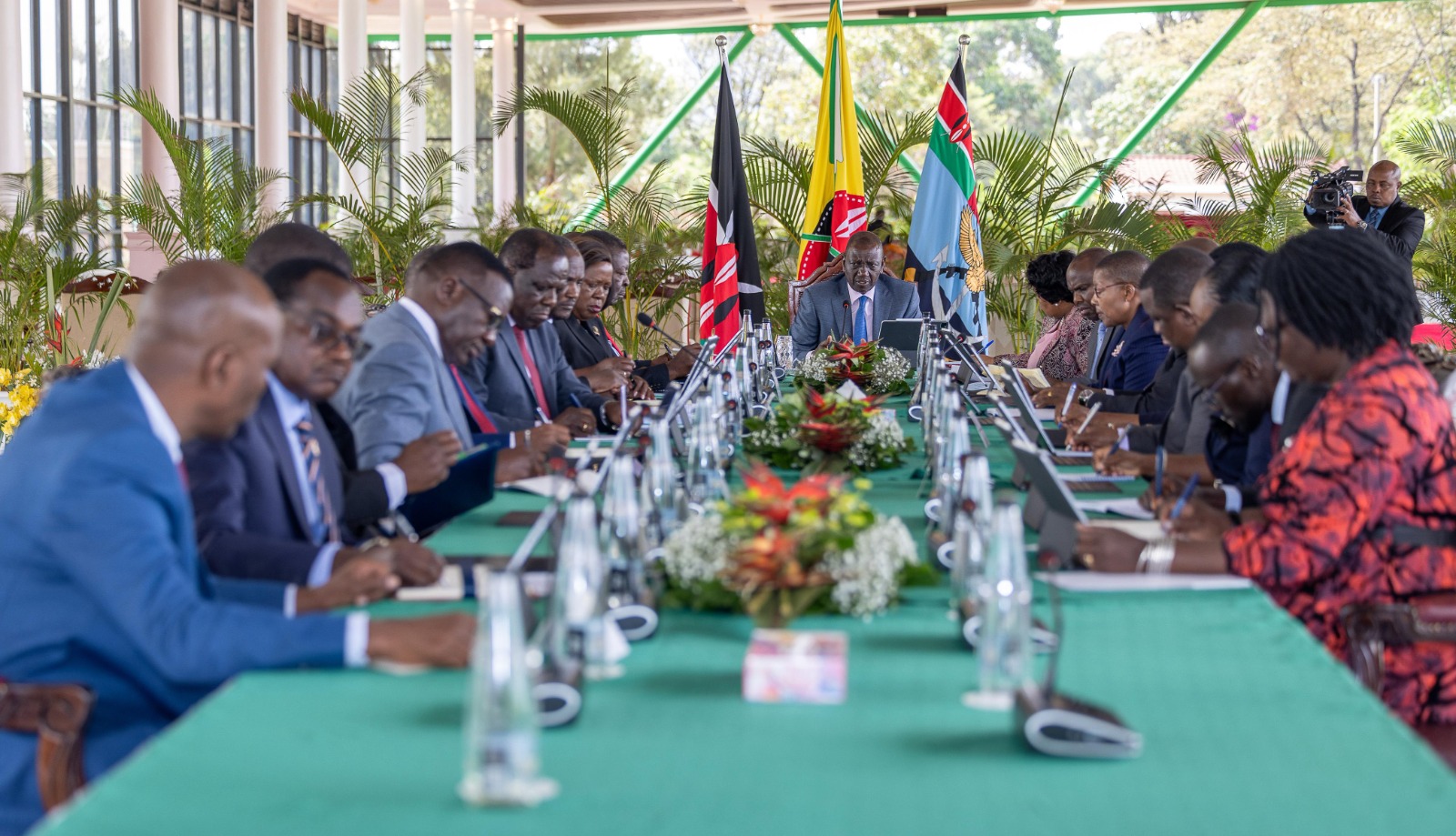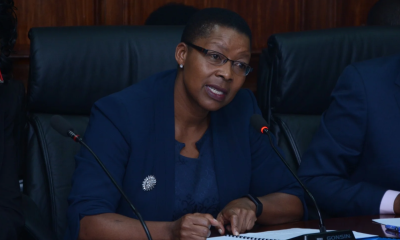Economy
Cabinet Approves Sh4.2 Trillion 2025/26 Budget
It includes Sh3.09 trillion for recurrent spending and Sh725.1 billion for development.

The Cabinet has approved the 2025 Budget Policy Statement (BPS).
The statement, which will now be forwarded to Parliament, sets a Sh4.2 trillion budget for the 2025/26 financial year.
Cabinet said the total expenditure, equivalent to 22.1 per cent of GDP, includes Sh3.09 trillion for recurrent spending, Sh725.1 billion for development, Sh436.7 billion in county transfers, and Sh5 billion for the Contingency Fund.
Under the Division of Revenue Bill 2025, the national government proposes a shareable revenue of Sh2.8 trillion, with Sh405.1 billion allocated to county governments as an equitable share and Sh10.6 billion for the Equalization Fund.
According to Cabinet, the county allocation represents 25.8 per cent of the most recent audited revenue (Sh1.57 trillion from the 2020/21 financial year), aligning with constitutional requirements.
The County Allocation Revenue Bill 2025 will distribute the county share based on the Third Basis Formula, while the c county government Additional Allocation Bill 2025 proposes an extra Sh69.8 billion – Sh12.89 billion from the National Government and Sh56.91 billion from development partners.
With the additional funds, total county transfers for 2025/26 will amount to Sh474.87 billion.
The 2025 BPS outlines the government’s economic priorities, focusing on sustaining growth, ensuring fiscal stability, and promoting inclusive green development.
To maintain economic momentum, the government has outlined six key priorities.
They are reducing the cost of living, eradicating hunger, creating jobs, expanding the tax base, improving foreign exchange balances, and fostering inclusive growth.
These will be achieved through strategic investments in key economic sectors, strengthening production and market access, and attracting local and foreign investments.
Cabinet said the government’s fiscal policy for 2025/26 prioritises fiscal consolidation to reduce debt vulnerability while ensuring adequate funding for essential public services.
This will be achieved through expenditure rationalisation, revenue mobilisation, and enhanced tax compliance.
The Medium-Term Revenue Strategy will guide tax reforms, ensuring efficiency, fairness, and progressivity while balancing revenue generation with social protection.
Key measures include expanding the tax base, leveraging technology for tax efficiency, sealing revenue loopholes, and maximising non-tax revenues from ministries, departments, and agencies.
President William Ruto chaired a Special Cabinet meeting on Tuesday at State House, Nairobi.
Kenya Insights allows guest blogging, if you want to be published on Kenya’s most authoritative and accurate blog, have an expose, news TIPS, story angles, human interest stories, drop us an email on [email protected] or via Telegram
-

 Grapevine1 week ago
Grapevine1 week agoRussian Man’s Secret Sex Recordings Ignite Fury as Questions Mount Over Consent and Easy Pick-Ups in Nairobi
-

 News5 days ago
News5 days agoTHE FIRM IN THE DOCK: How Kaplan and Stratton Became the Most Scrutinised Law Firm in Kenya
-

 Investigations1 week ago
Investigations1 week agoMulti-Million Dollar Fraud: Three Kenyans Face US Extradition in Massive Cybercrime Conspiracy
-

 Economy6 days ago
Economy6 days agoIran Demands Arrest, Prosecution Of Kenya’s Cup of Joe Director Director Over Sh2.6 Billion Tea Fraud
-

 Business7 days ago
Business7 days agoA Farm in Kenya’s Rift Valley Ignites a National Reckoning With Israeli Investment
-

 Africa1 week ago
Africa1 week agoFBI Investigates Congresswoman Ilhan Omar’s Husband’s Sh3.8 Billion Businesses in Kenya, Somalia and Dubai
-

 Business2 weeks ago
Business2 weeks agoM-Gas Pursues Carbon Credit Billions as Koko Networks Wreckage Exposes Market’s Dark Underbelly
-

 Arts & Culture1 week ago
Arts & Culture1 week agoWhen Lent and Ramadan Meet: Christians and Muslims Start Their Fasting Season Together


















